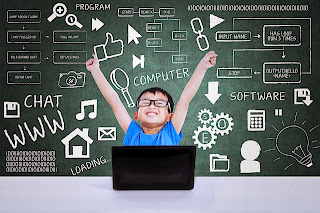Education is really a factor which nourishes human existence especially when it's given appropriately within the developmental stages. Education supplies a strong base for that human intellect and enables us to distinguish between right and wrong, perfect and imperfect, good and evil. A young child in the stage of existence from becoming an infant to some pre-mature person needs education to outlive within this competing atmosphere. Ever thought about how come we not the same as Creatures? How come we more capable than creatures? So why do we believe and understand one another? How come children from slums different in the intellectual level compared to children from metropolitan areas? Yes, the main response is that we're human but when we obtain deep in to the concept of human, we become familiar with our distinguishing factor is education.
Education includes three stages.
2. Mid-life Education.
3. Greater Education.
Early childhood education is an essential of these stages. Think about a Ladder. The ladder is an essential supply of focusing on a factor that's in a maximum height. Now think, what's the ground base of this ladder is weak or damaged? Yes, the individual focusing on it'll fall. In the same manner, preschool knowledge is extremely essential to develop a strong base inside a child's existence. Early childhood education gives our youthful one basics to face upon and face the planet. It will help him to distinguish between negative and positive, rational and non-rational. Early childhood education increases human intellect if it's succumbed the best direction.
Supplying strong base for your child's existence
Now, to be able to provide strong base for your child's existence different Montessori schools are made. These Montessori schools give a very firm base before a young child adopts greater level. Montessori pre-schools happen to be growing positively in an growing rate daily. These schools not just provide a platform for pre-school Education but additionally guarantee a constructive learning that may increase the value of your son or daughter's existence. The gorgeous grounds incorporate instructors which are first trained for this kind of teaching. Small courses like The spanish language learning for him or her will also be on offer. The bottom line is, it provides an entire package of creating your son or daughter a really capable person.







